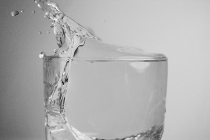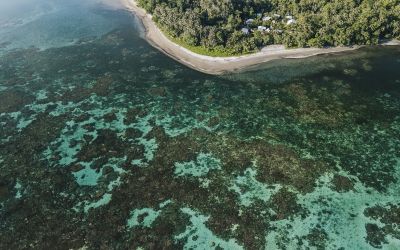Israel turns to desalination for drinking water
On Sunday Israel unveiled the world's largest reverse osmosis desalination plant.

 On Sunday Israel unveiled the world's largest reverse osmosis desalination plant. It has been built by a partnership of IDE technologies and Shikun Binui and has cost $425 million. It has been built on the Mediterranean coast near the city of Hadera and its aim is to resolve the problem of water shortage within the arid country.
On Sunday Israel unveiled the world's largest reverse osmosis desalination plant. It has been built by a partnership of IDE technologies and Shikun Binui and has cost $425 million. It has been built on the Mediterranean coast near the city of Hadera and its aim is to resolve the problem of water shortage within the arid country.
Until recently, the National Water Carrier has provided the country's main supply of drinking water. This is the water transport system that has sustained Israel for 50 years. It transfers water from the Sea of Galilee in the North to the dry areas in central and south Israel where drinking water is less easy to come by naturally. "Up until now, it was a government monopoly regulating all water transportation", said Teddy Golan, Vice President of IDE technologies.
The Hadera Desalination plant will provide 20 per cent of yearly household consumption, about 33 billion gallons of water per year. It is the third plant to be built out of five planned over the next couple of years and it is hoped that these plants will provide two thirds of the country's clean water as traditional sources are dwindling.
A rise in population and a recurrent lack of rainfall have meant that Israel has been suffering from a shortage of drinking water. Inadequate rainfall has meant that in recent years the Sea of Galilee, the country's main water resource, has reached a record low. It is hoped that desalination will resolve these problems and supply Israel with a plentiful supply of clean drinking water. IDE Technology CEO, Avshalom Felber, believes "the more desalination we do, the less we'll need to exhaust these resources and allow them to get back to their natural state."
Despite this alleviation for the Sea of Galilee there is some controversy over its impact on ocean life. Israeli environmental group Zalul want more research to be done on the effects of the by products. Although this new plant uses reverse osmosis technology in place of thermal based technology and therefore does not require the heating of water and requires less energy there is still some concern over the effects it will have on the environment. Despite this Rivi Federman, Mediterranean coast coordinator for Zalul, asserts that "we are in favour of desalination but not so sure about building so many plants. It should be one part of a solution, along with conservation."
Author: Rachael Bristow | Climate Action
Image: Matt and Kim Rudge | Flickr

